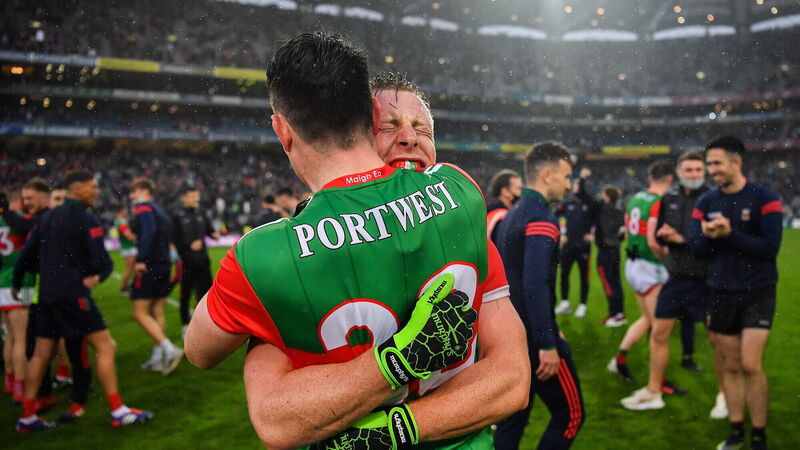Colin Sheridan: If Mayo were born broken, then they have truly lived by mending

James Durcan, 22, and Ryan O'Donoghue of Mayo celebrate their victory over Dublin.
Why should we blame them that they fill our days with misery? Or, that they would, of late, have taught to ignorant men, most violent ways? This was not a sporting victory. Nor was it the simple dismantling of an empire. For so long it looked like just another defining chapter in an encyclopedia of woe. Instead, it turned out to be a parable, and an ode to Saint Jude, the patron saint of lost causes.
It came down to an outstretched leg. It came - the leg - when Mayo were five points down with seven minutes to play and drowning in a sea of blue. It looked like the last act of a desperate man, a desperate team, playing poorly but somehow surviving. The leg belonged to Diarmuid O’Connor. He chased a cause so lost his stubbornness to retrieve it seemed a tad quaint, a typical Mayo thing to do. A bit daft. Half cracked.








